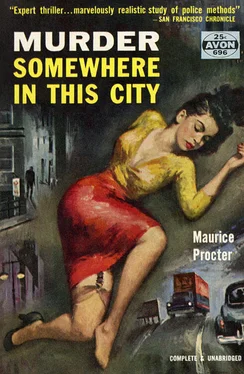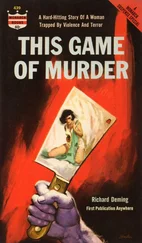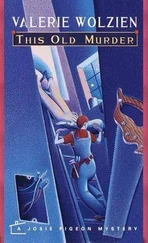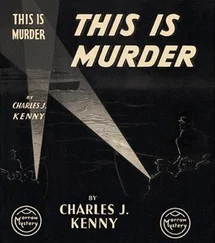Maurice Procter - Murder Somewhere in This City
Здесь есть возможность читать онлайн «Maurice Procter - Murder Somewhere in This City» весь текст электронной книги совершенно бесплатно (целиком полную версию без сокращений). В некоторых случаях можно слушать аудио, скачать через торрент в формате fb2 и присутствует краткое содержание. Год выпуска: 0101, Издательство: Avon, Жанр: Полицейский детектив, на английском языке. Описание произведения, (предисловие) а так же отзывы посетителей доступны на портале библиотеки ЛибКат.
- Название:Murder Somewhere in This City
- Автор:
- Издательство:Avon
- Жанр:
- Год:0101
- ISBN:нет данных
- Рейтинг книги:5 / 5. Голосов: 1
-
Избранное:Добавить в избранное
- Отзывы:
-
Ваша оценка:
- 100
- 1
- 2
- 3
- 4
- 5
Murder Somewhere in This City: краткое содержание, описание и аннотация
Предлагаем к чтению аннотацию, описание, краткое содержание или предисловие (зависит от того, что написал сам автор книги «Murder Somewhere in This City»). Если вы не нашли необходимую информацию о книге — напишите в комментариях, мы постараемся отыскать её.
Murder Somewhere in This City — читать онлайн бесплатно полную книгу (весь текст) целиком
Ниже представлен текст книги, разбитый по страницам. Система сохранения места последней прочитанной страницы, позволяет с удобством читать онлайн бесплатно книгу «Murder Somewhere in This City», без необходимости каждый раз заново искать на чём Вы остановились. Поставьте закладку, и сможете в любой момент перейти на страницу, на которой закончили чтение.
Интервал:
Закладка:
“You can’t afford to cover him again,” said Lovett. “I tell you, you can’t afford it!”
“I can afford it one more time.”
“All right,” said Lovett. “But remember, it’s your own neck.” To those who listened that sounded like an entirely natural remark. If Jakes were gambling away the money of other gamblers, it was his own neck which he was putting in peril. He ran the risk of getting it cut with a razor as sharp as his own. Therefore they were not surprised when he in his turn began to look worried.
“You’re right, Laurie,” he replied with sudden meekness, because he also was aware of listeners. “I can’t cover it again. I were only goin’ ter try an’ frighten him. I’ll just put a fiver on till my luck changes.”
Lolly placed his bet, and the stakeholder said: “All right then. Who’s bettin’ agen’ this eighty nicker? Make yer bets up inter fivers an’ tenners, then I can remember who’s who.”
One man, a bookmaker, gave the stakeholder twenty pounds as an individual bet. The one-pound gamblers made themselves into small temporary syndicates and handed in £5 and £10 bets. Each man knew the members of his own syndicate, and there could be no cheating or confusion at the pay-off. The sum of £80 was quickly made up.
“Right,” said the stakeholder, and the putter-on stepped forward with the two halfpennies. Doug threw, and once more he headed the coins at the first attempt. There was now £160 in the ring.
“Leave it,” said Doug. “I’ll skin the lot of you.”
The bookmaker immediately increased his bet to £40, but money from the small gamblers came in more slowly this time. In the opinion of many, Doug was “set” to head the coins eight or nine times. They noted his confidence. He was in luck. They preferred not to bet against him until he was nearing the end of his run.
The stakeholder raised only £95 to meet Doug’s £160. “Only ninety-five,” he said. “Yer all windy. One man is flayin’ the lot on yer.”
Bill Bragg, who had lost his original stake and another pound as well, withheld his bet this time. He was one of those who believed that Doug would make one or two more successful throws. He stood aside to make room for those who wanted to bet, and he heard Lolly Jakes mutter, as if to himself, that Doug would never succeed in heading the coins another time. He was also surprised to see that Lolly was pulling a really big wad of money from his pocket.
Other bystanders were no longer interested in Lolly. He had had his moment. Only Bragg saw the fistful of money. Bragg, and the two men who were watching Lolly-Laurie Lovett and Clogger. They closed in on him.
“Put it away, man!” Laurie whispered fiercely. “Have you gone wrong in your head?”
Lolly scowled at him, and in doing so he met the fanatical glare of Clogger: Clogger, the frenzied adherent of a cause, the cause being Clogger’s welfare. That wild angry look daunted Lolly, not because he was afraid of the man but because he knew that the anger was justified.
“So help me,” Clogger whispered. “I’ll stop yer if I have to knife yer.”
Lolly made no reply, but he thrust the half-extracted money back into his pocket and turned to watch the gambling with little hooded eyes.
Doug Savage threw, and lost. The stakeholder paid out the winners, and gave the innkeeper the £65 which remained.
Doug gave him a five-pound note. “Sixty quid isn’t so bad,” he said. “I think I’ll call it a day. My luck turned on that last throw.”
His obvious self-satisfaction enraged Jakes. He turned in fury upon Roach and Lovett.
“But for your interference I’d a-won me money back, an’ that sod would a-won nowt,” he snarled in a whisper. “God rot yer!”
The other two did not reply. But they were united in disapproval of his conduct and they met his scowl coldly.
“Ah, go to hell!” said Lolly, and he turned his back on the ring and went off the way he had come. His accomplices watched him until he disappeared among the rocks.
With his open-mouthed, vacant stare Bill Bragg also watched Lolly. He had seen the whole incident and heard some of the conversation, and he thought that it would make a nice item of gossip.
It would be no use telling Gus, the boss, when he went to see him in the hospital. Gus wouldn’t be interested in small-timers. He had a habit of cutting off Bill’s oral efforts in midsentence with a curt: “Stop blathering, Bill. It takes you half an hour to tell a two-minute tale.”
But it would make a tale to tell at the club. And his workmate, Stan Lomax, would be interested. Stan would probably know something. At any rate he would figure out an explanation as to why Laurie Lovett and another fellow had stopped Jakes from making a bet with some money he had in his pocket. Happen Stan would know which street-corner bookie the money belonged to. Whoever the bookie was, he ought to have his head examined for trusting Jakes with so much money.
The man ought to have his head examined. That is what Bill thought. He had that sort of brain. The sight of a much larger amount of money than he had first seen did not cause him to abandon the idea he had first formed. Bill’s brain could not handle more than one idea at a time.
Moreover, having decided that he would remember to tell somebody about the idea he had, Bill stored it away in the dusty background of his mind and immediately forgot it. Nothing less obvious than a leading question was likely to bring it out again.
6
That Sunday night, when Devery went to see his Silver, he gave her grandfather the news that Don Starling was now wanted for murder. To his surprise Furnisher again failed to show his usual lively appreciation of being “in the know” before the newspapers appeared. Nor did he say “I told you so.” He only shook his head, and his old eyes reflected a sober misgiving.
“He’ll see the papers in the morning,” he said. “Ther’ll be his photo on every front page. He’ll know it’s all or nowt, now.”
“It’ll be nowt, I think. We’ll soon get him. He won’t be able to move without being spotted.”
“He’ll be desp’rate. It’ll not be prison he’s thinking about. It’ll be the judge, putting the black cap on. He won’t be saying ‘Thank you, me lord,’ this time.”
“No, I’m afraid he won’t,” Devery agreed. “It’ll be the end of the road for him. He won’t care what he does.”
Furnisher looked at Silver before he spoke again. It was a good thing, he thought, that Devery was so busy. Because Devery was too busy to take her out, the girl stayed around the house. She was proper domesticated. Of course she had had no shopping to do since Saturday night. Tomorrow the shops would be open. If she went out, Furnisher would have to make an excuse to go with her, and he would take his old gun. It was more than half a century old, a service revolver of Boer War issue, but it would still stop a man; stop him immediately and permanently.
The old man’s vigilance was not based on reasonable expectations. Starling had no real motive for hurting Silver. He had made a bargain, and he would gain nothing by dishonoring it. And he would also be very busy saving his own skin. But Furnisher was taking no chances where Silver was concerned, and, in spite of the bold way he had spoken to Starling on the telephone, he had an instinctive fear of the man. It was easy for him to imagine what that dangerous criminal might do out of pique, injured vanity, fancied insult or mere senseless cruel whim. Until Starling was caught, Furnisher was determined to be always in a position to guard Silver. Wherever she went out of doors, there would he be also.
“Well, the sooner you catch him, the better for everybody,” he told Devery. “But, by gum, watch yourself if you come up agen him.”
Читать дальшеИнтервал:
Закладка:
Похожие книги на «Murder Somewhere in This City»
Представляем Вашему вниманию похожие книги на «Murder Somewhere in This City» списком для выбора. Мы отобрали схожую по названию и смыслу литературу в надежде предоставить читателям больше вариантов отыскать новые, интересные, ещё непрочитанные произведения.
Обсуждение, отзывы о книге «Murder Somewhere in This City» и просто собственные мнения читателей. Оставьте ваши комментарии, напишите, что Вы думаете о произведении, его смысле или главных героях. Укажите что конкретно понравилось, а что нет, и почему Вы так считаете.












